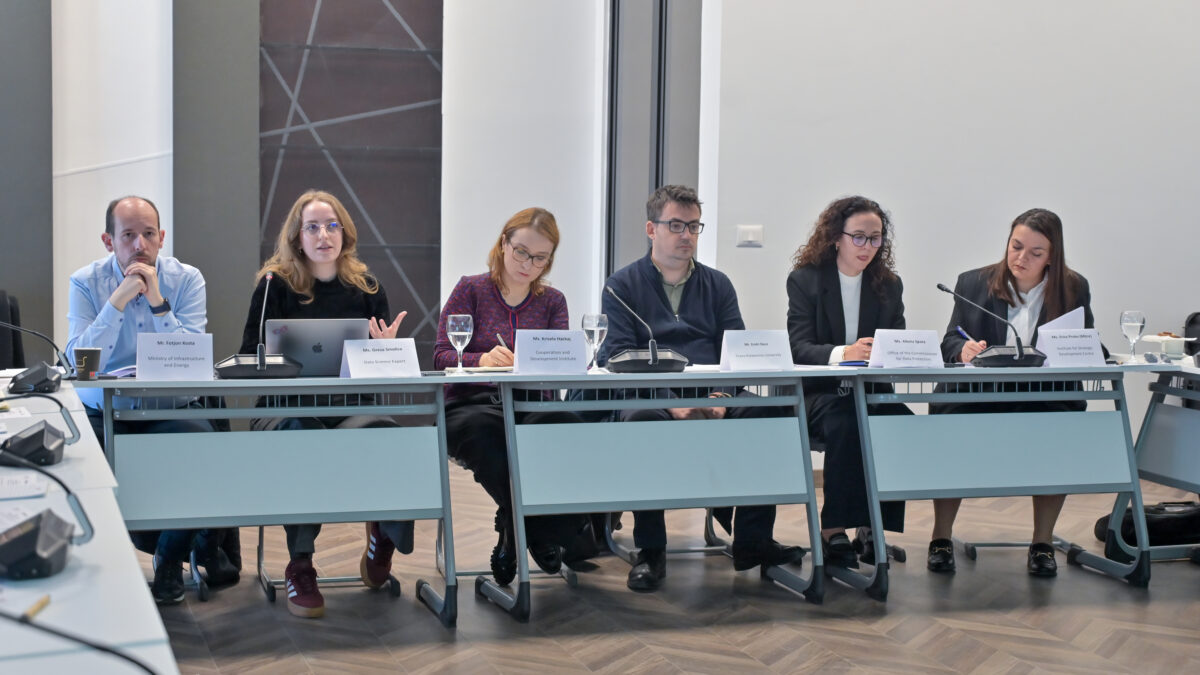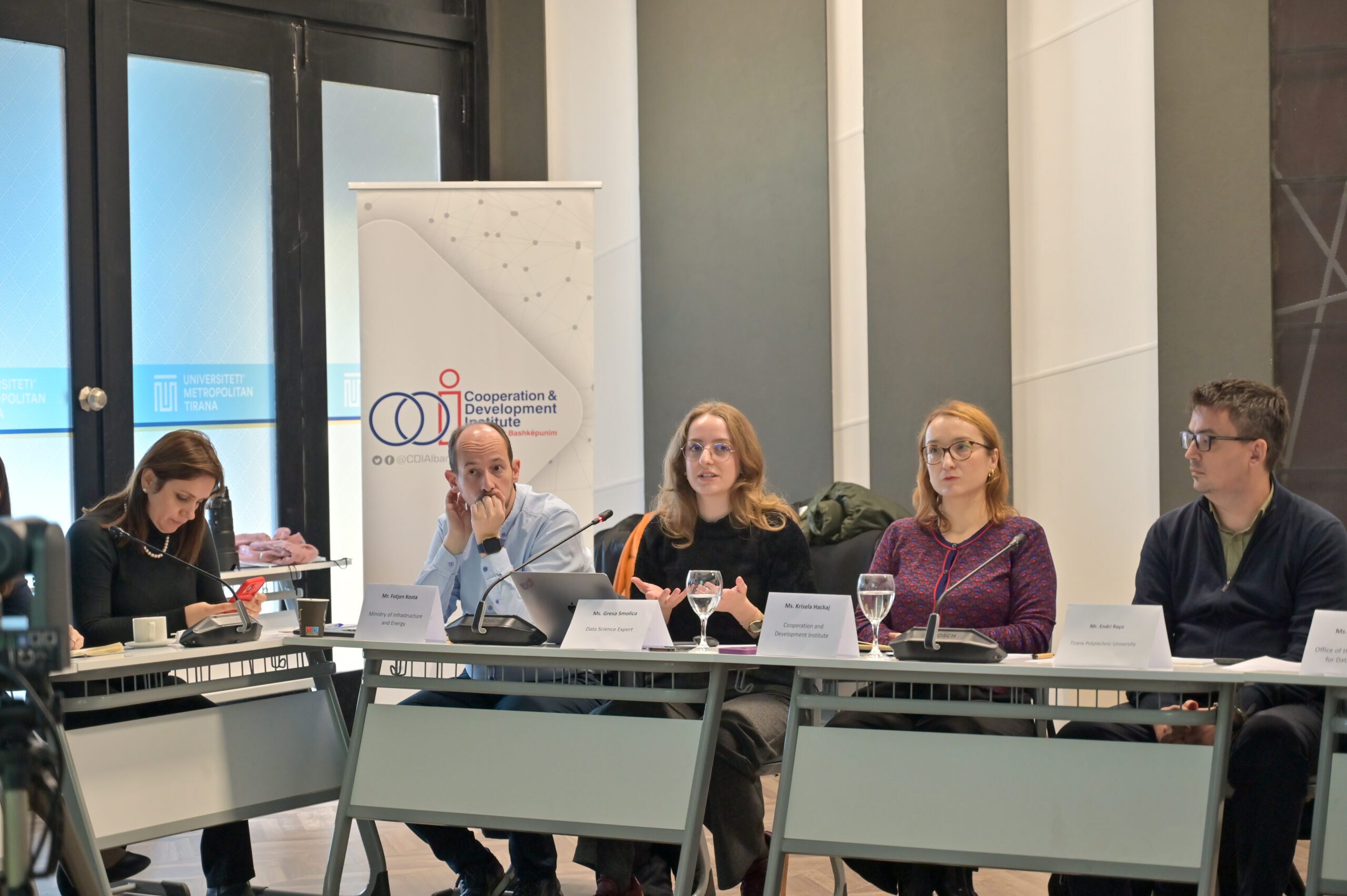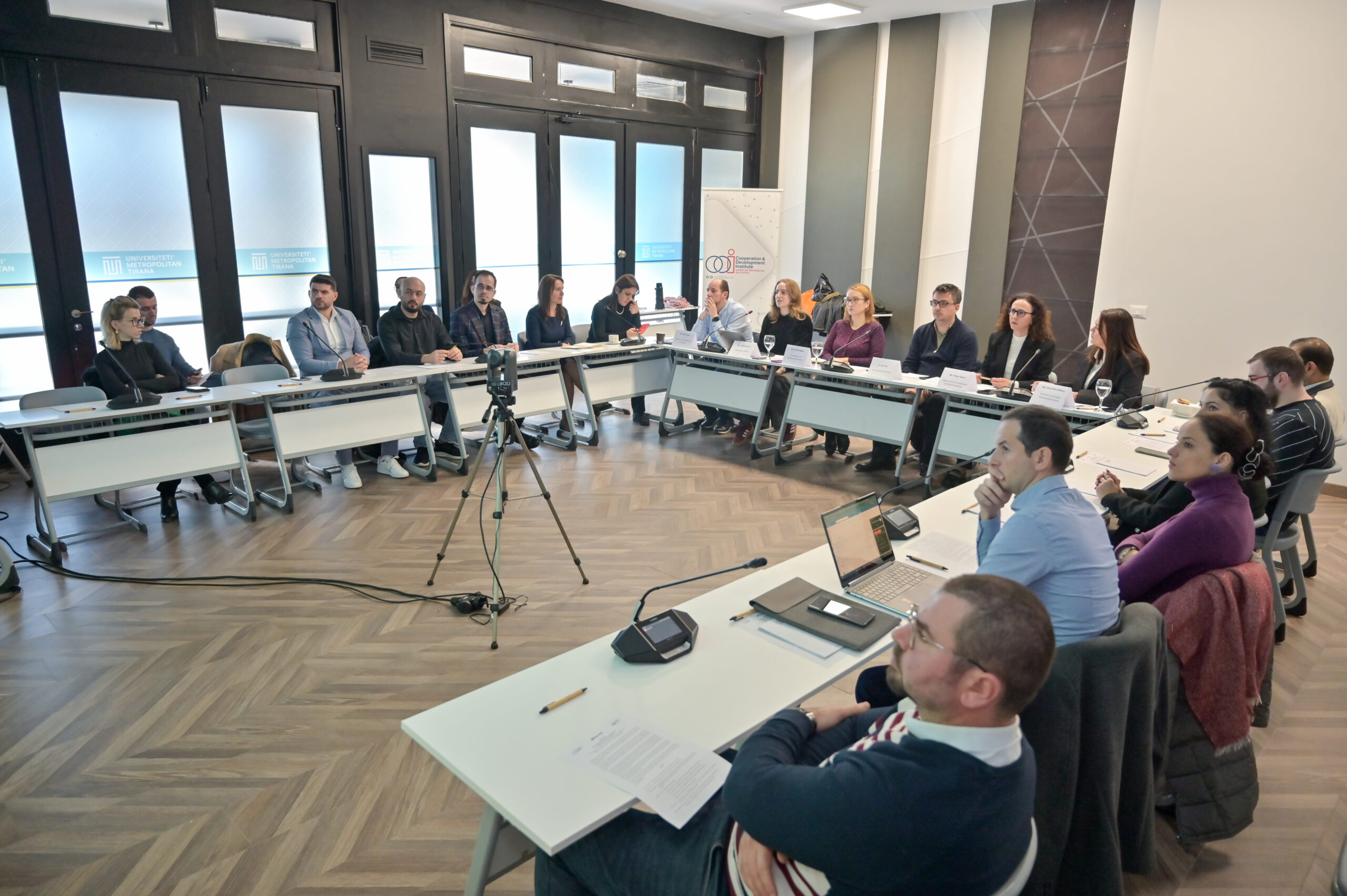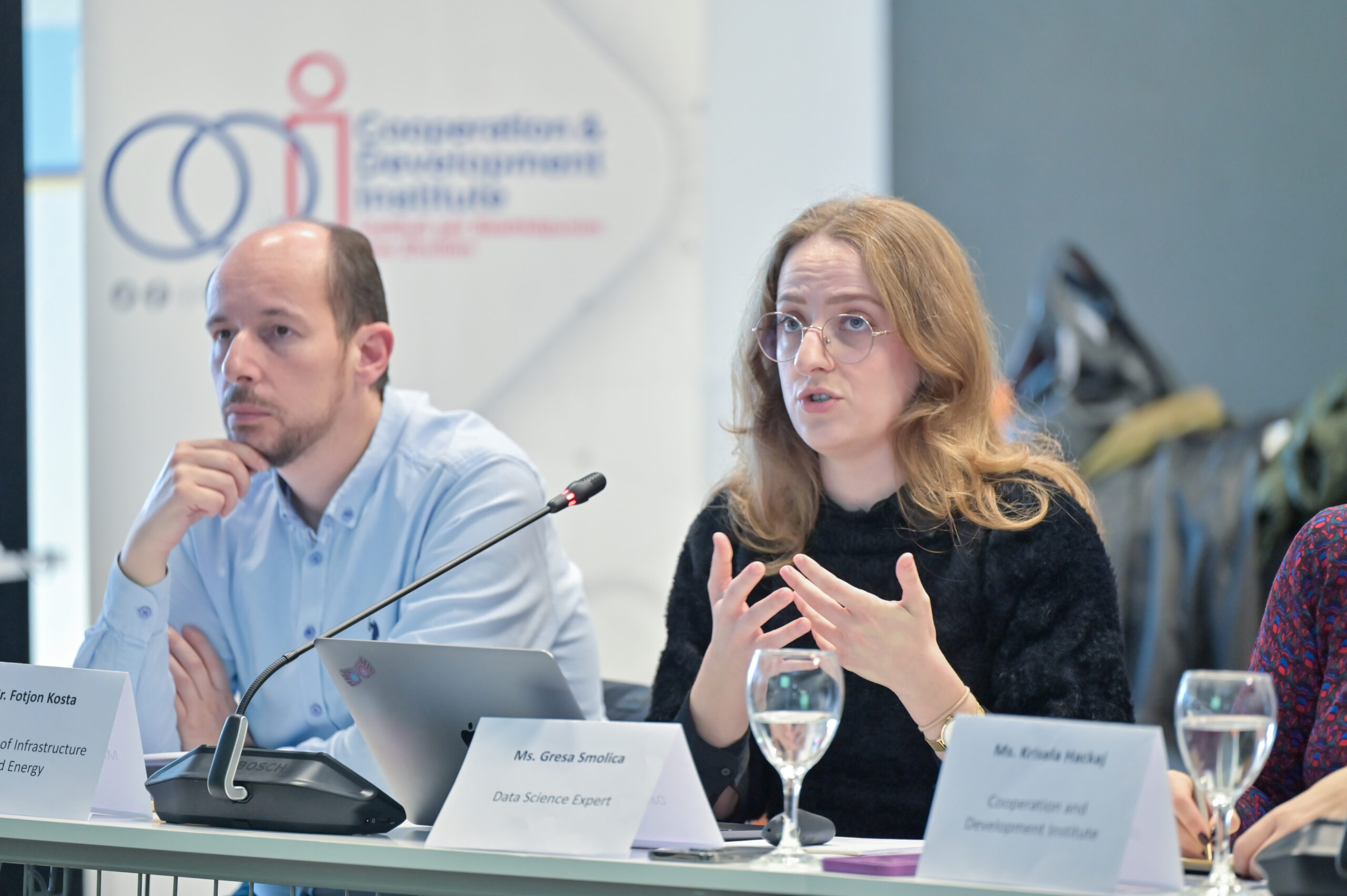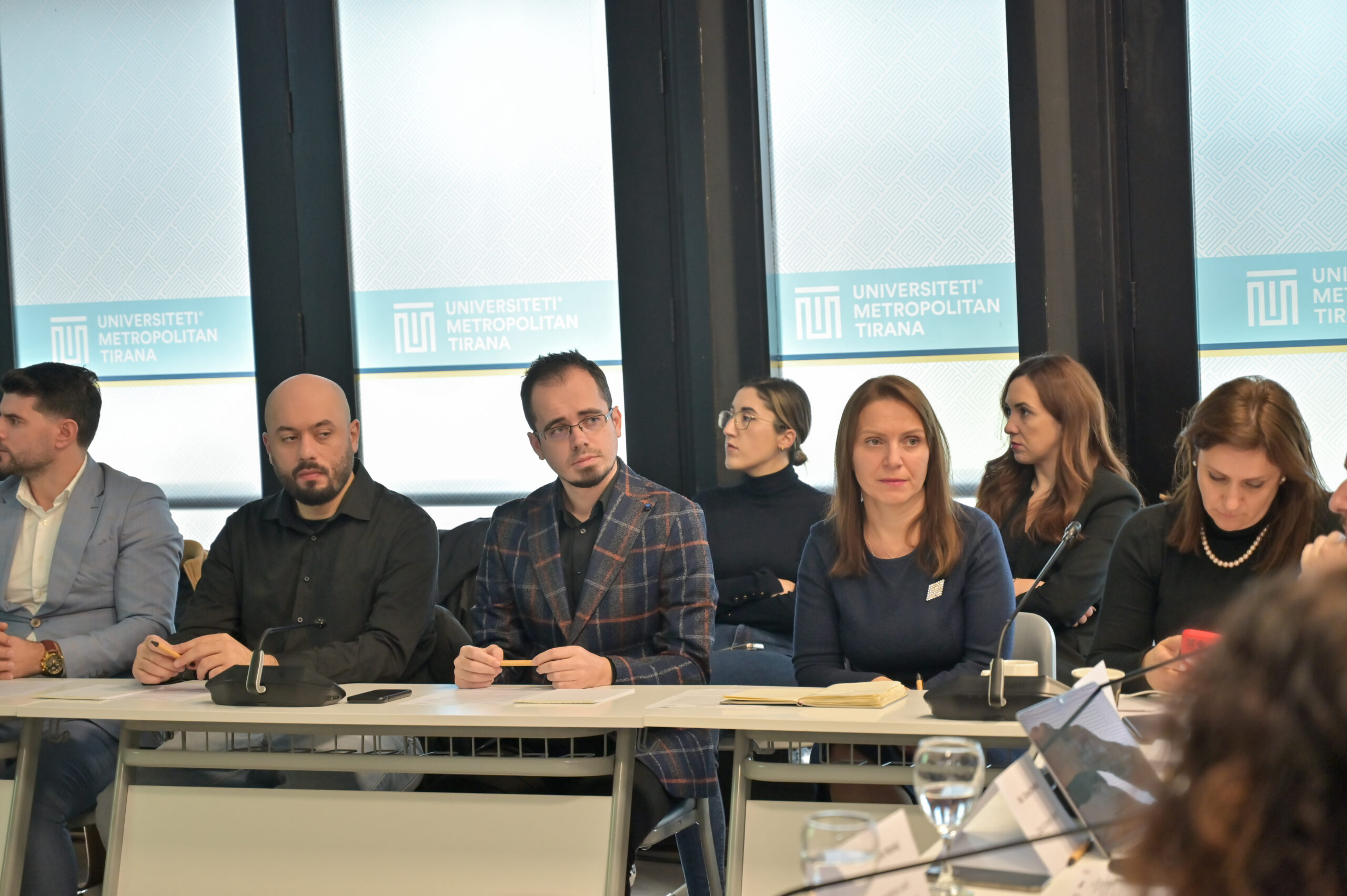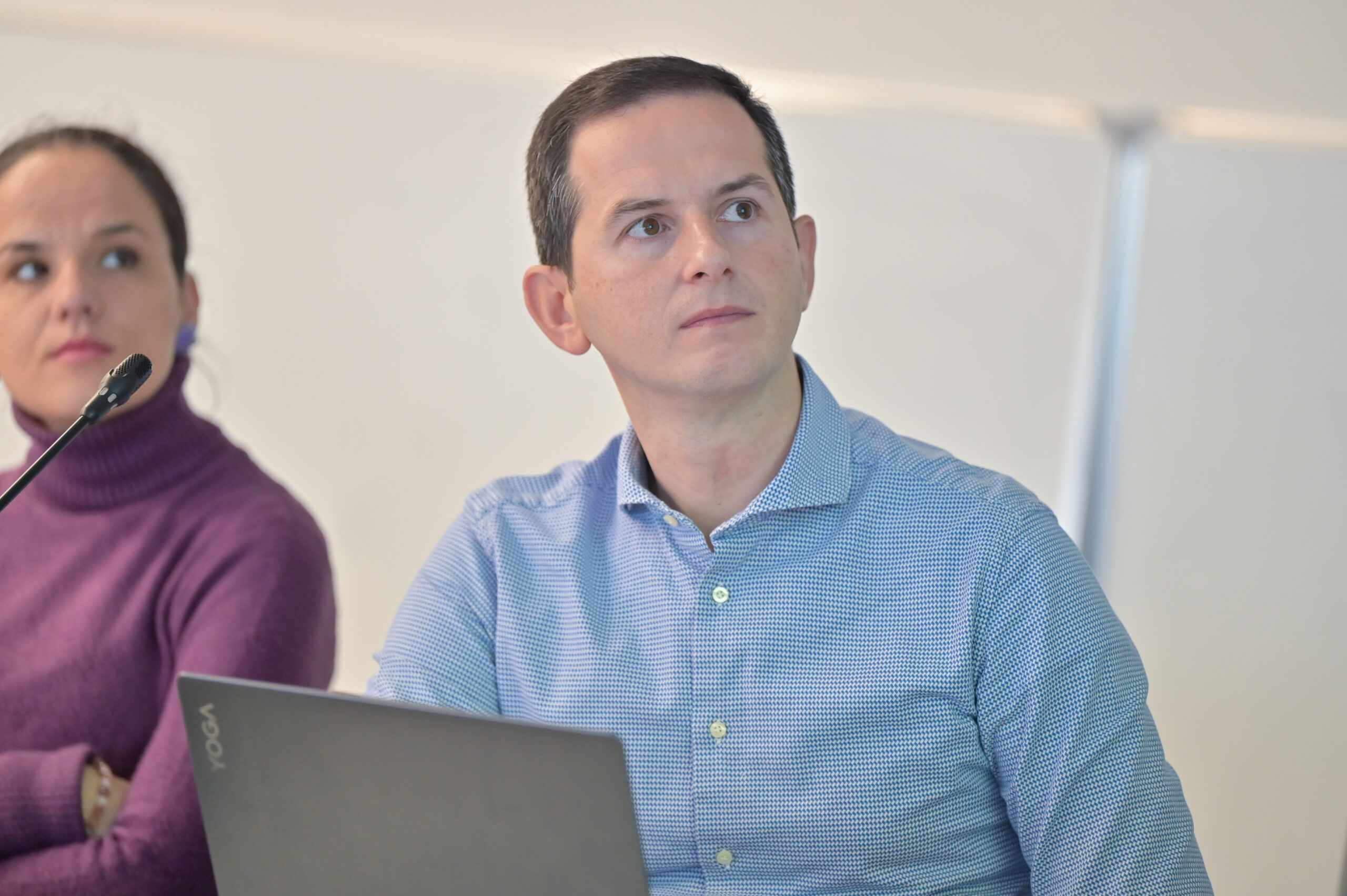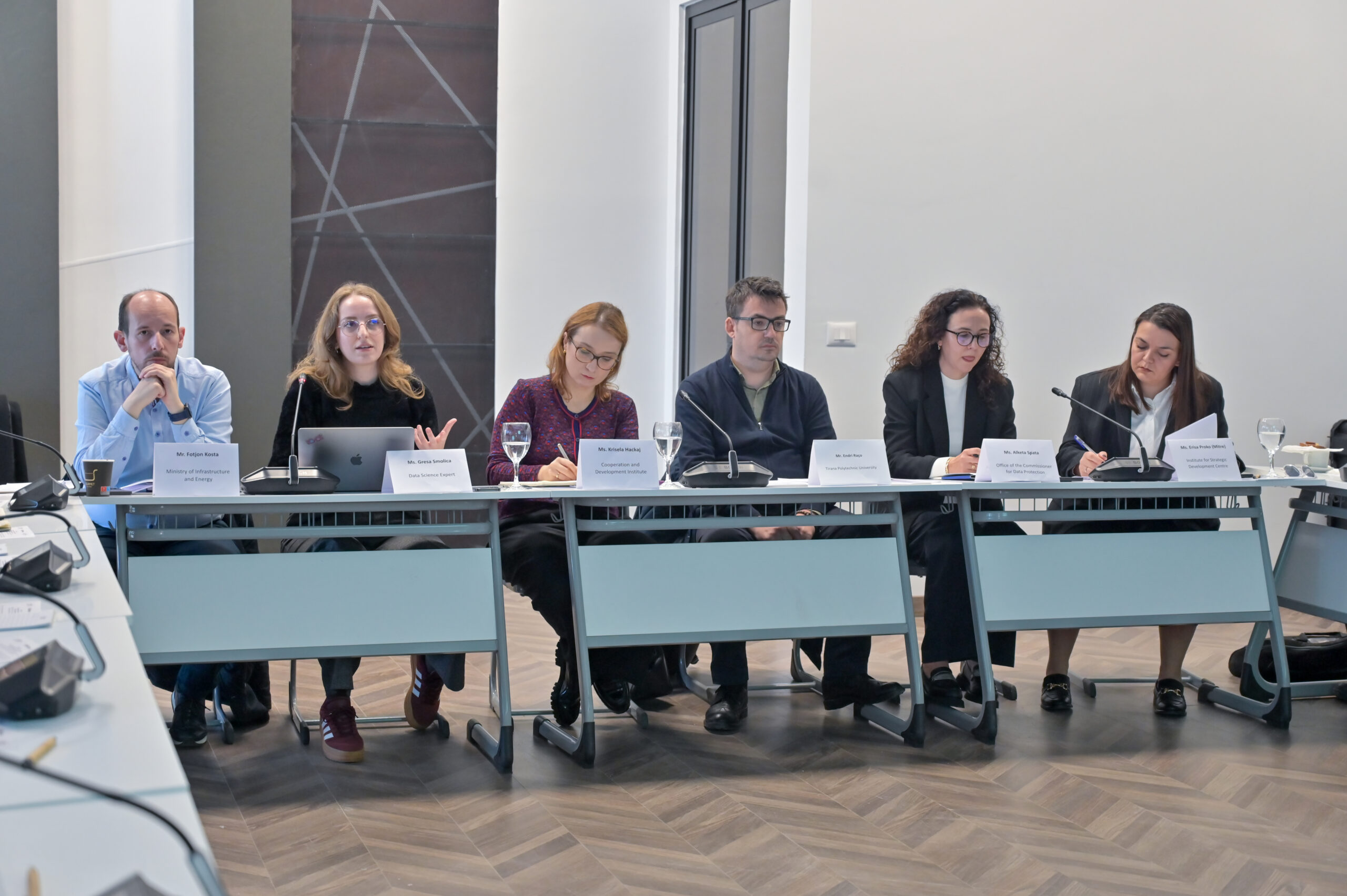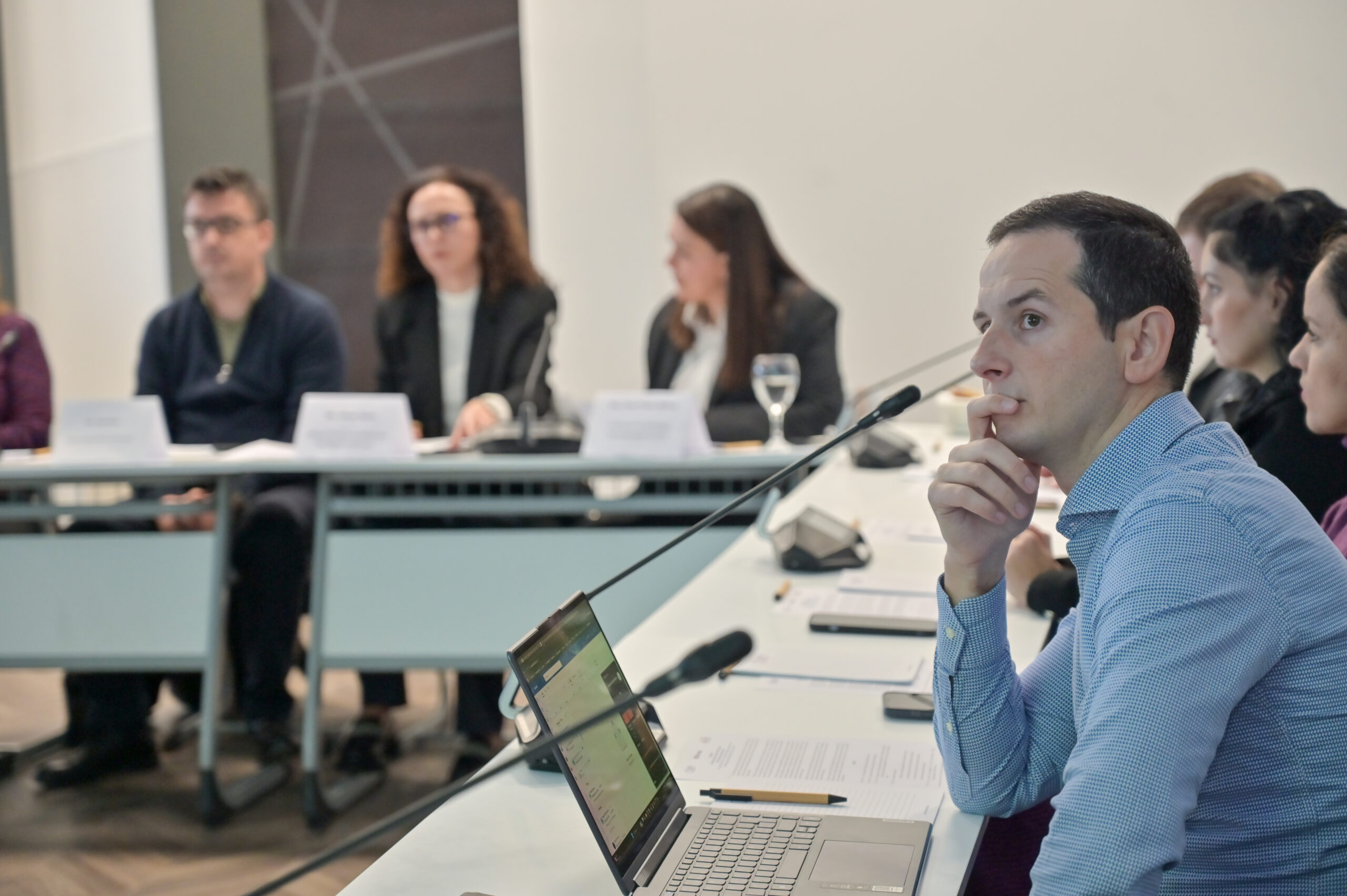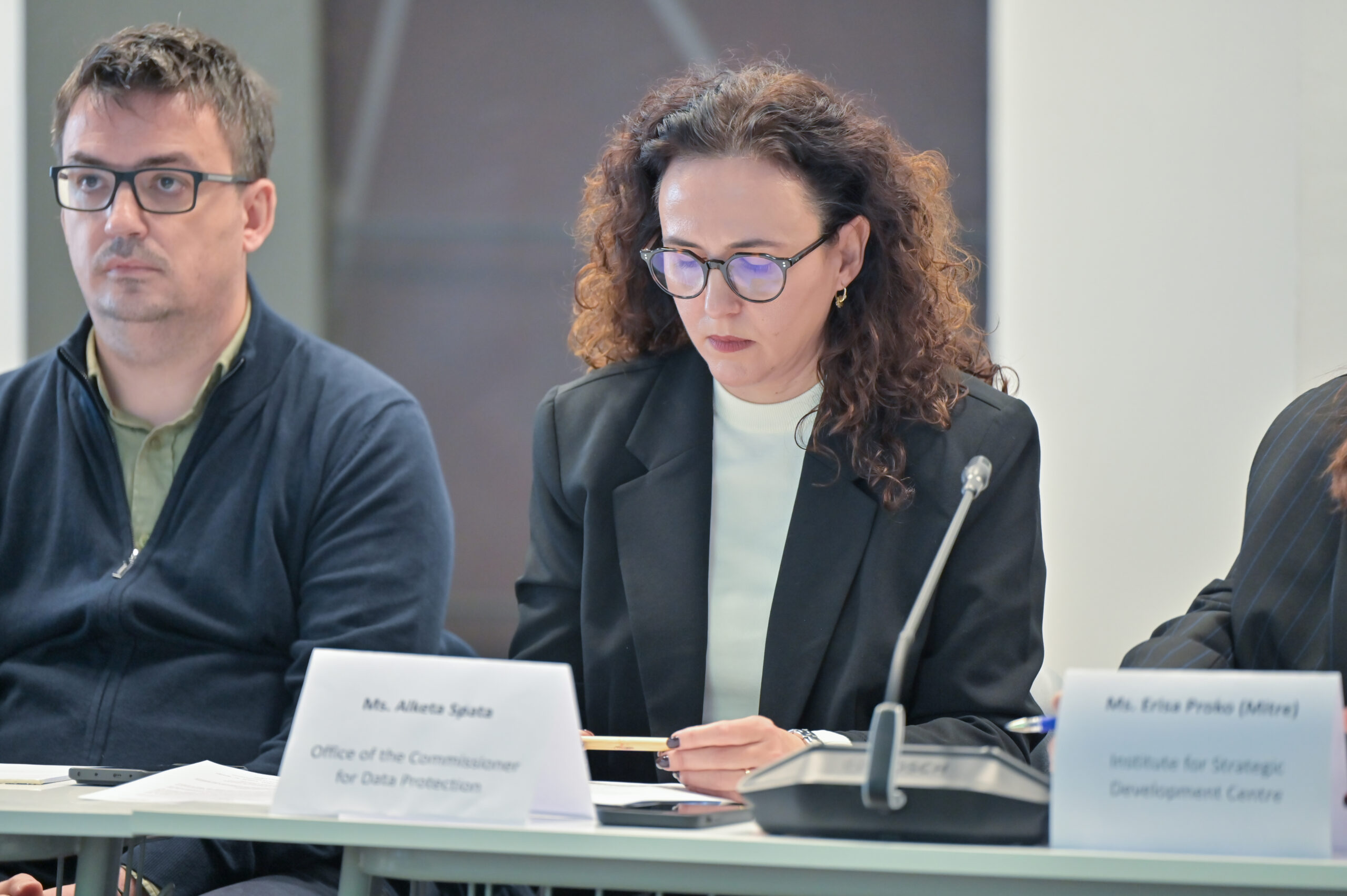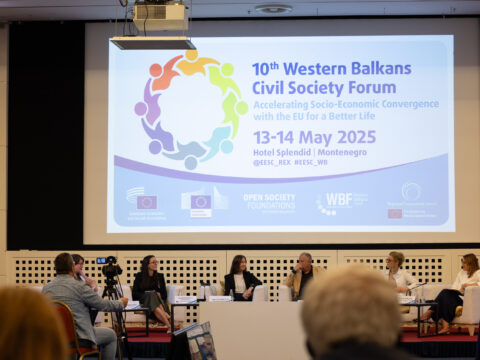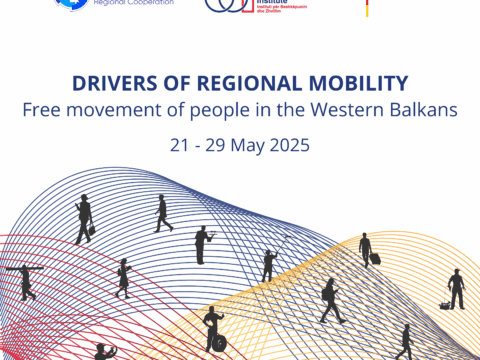The Western Balkans Investment Framework (WBIF) plays a pivotal role in implementing the EU’s Economic and Investment Plan projects in the Western Balkans. However, a recent assessment by the CDI and specialized Civil Society Organizations (CSOs), has identified critical gaps in how WBIF data is stored and shared. These shortcomings include the absence of machine-readable formats and reliance on outdated platforms, which impede effective data analysis and research.
To address these challenges, CDI hosted the workshop titled “Analyzing Information Provided on the WBIF Website: A CSO Data Science-Based Approach.” This event brought together experts, academics, and policymakers, from Albania, SEE6 region and EU, to discuss actionable solutions for improving the transparency and efficiency of WBIF-supported projects. The workshop was the final public event of the project “Connected We Can: Strengthening WB6 CSOs’ Agency in Economic and Investment Plan Implementation,” supported by the Norwegian Ministry of Foreign Affairs through the SMART Balkans initiative. This initiative aligns with the project’s mission of integrating social actors from Southeast Europe 6 (SEE6) into policy-making and infrastructure project cycle management.
In her opening remarks, CDI Executive Director Ms. Krisela Hackaj underscored the 5th Social Forum’s call for regional partners to engage CSOs in transport policy development, project prioritization, and preparation. She emphasized the role of CSOs as advocates and agents of change, amplifying citizens’ voices and fostering participatory decision-making.
To this end, a major takeaway from the workshop was the critical need to design policies with a data-centric approach. This involves ensuring public data is accessible, up-to-date and hosted on user-friendly platforms that enable CSOs, think tanks, academia and policymakers to monitor, evaluate, and advocate for effective investment planning.
Ms. Gresa Smolica, Data Science Expert, presented key features from CDI’s assessment of WBIF’s website and others providing similar information, with a closer focus on International Financial Institutions to draw on their good practices for data publication that could be integrated in WBIF’s website. Key recommendations thus include providing accessible and downloadable datasets, machine-readable information, integrating interactive APIs for more automated work, improve web navigation and presentation and foster collaboration between WBIF administrators and stakeholders.
As many reforms lie ahead and new EU instruments start their implementation in the Western Balkans, it remains crucial to prioritize data publication standards and open data implementation.
Mr. Endri Raço from Tirana Polytechnic University, emphasized the importance of investing in data skills integrated with societal and economic competencies. He called for closer collaboration between academia and policymakers to address data-related challenges.
Ms. Alketa Sata from the Office of the Commissioner for Information Rights and Data Protection, highlighted Albania’s Open Data Hub initiative, which will provide citizens with accessible, downloadable, and up-to-date public sector information. This initiative underscores Albania’s commitment as an associate country of the Digital Europe Program, aimed at bringing digital technology to businesses, citizens, and public administrations.
Mr. Fotjon Kosta from the Ministry of Infrastructure and Energy, outlined national measures to support data accessibility and digital transformation efforts, reflecting Albania’s broader digitalization goals.
Mr. Zsolt Toszegi from DG NEAR, representing WBIF, commended CDI’s proactive and continuous approach in addressing data usability challenges. He noted the importance of continuous feedback to support WBIF to gain a deeper understanding of the WBIF public data gaps and improve transparency.
The workshop highlighted the indispensable role of data in fostering transparency and efficiency in WBIF projects. By addressing data accessibility issues and enhancing collaboration among stakeholders, the Western Balkans can ensure more effective implementation of the EU’s Economic and Investment Plan.



